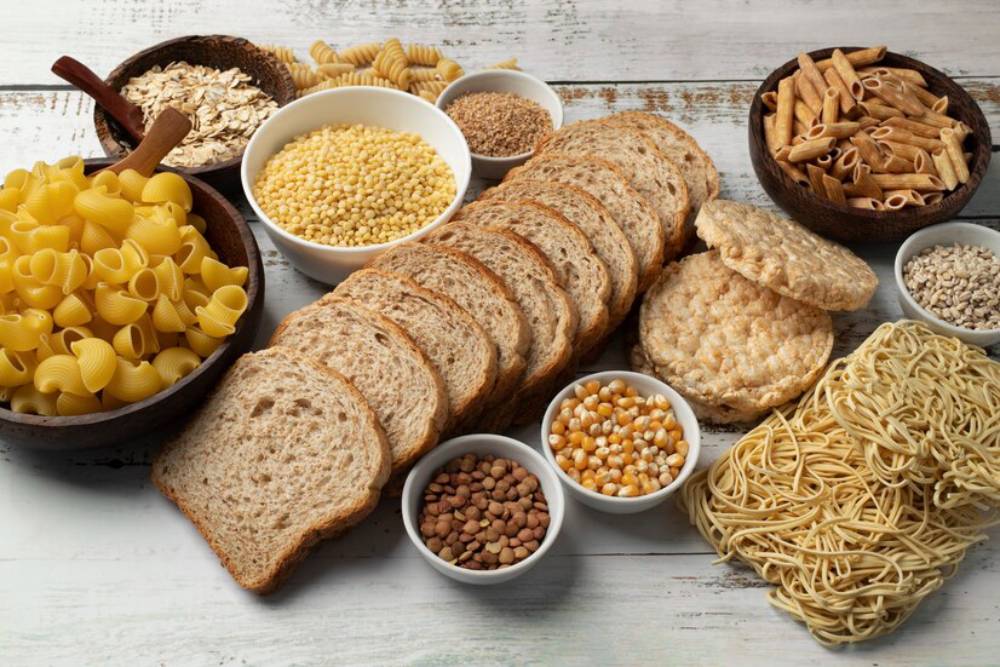
Common Nutrition Myths That Are Holding You Back
Nutrition advice has become like opinions on politics or religion: Everyone has one, and few can agree. From social media trends to outdated advice, all the conflicting information can get confusing. The problem? In fact, some of the biggest food myths could end up undermining your health goals rather than supporting them.
Whether you’re looking to eat better, shed pounds or just feel good, separating fact from fiction is crucial. In this post, we’ll debunk the most common healthy eating myths, and explain the diet facts you need to make informed, balanced choices.
Myth 1: Carbs Are Bad for You

Let’s begin with a food myth that is ubiquitous—carbohydrates make you gain weight or are fundamentally unhealthy.
The Truth:
Carbohydrates provide the majority of the energy required by the body. Whole, unrefined carbs, such as oats, brown rice, sweet potatoes, and fruit, are high in fibre, vitamins, and minerals.
It’s refined carbs — things like white bread, sugary snacks, and processed cereals — that’s the problem, not carbs on the whole.
Diet Fact:
Eliminating all carbs may lead to short-term weight loss, but it can also cause fatigue, cravings, and nutritional gaps. Balance is key.
Myth 2: Eating Fat Makes You Fat
Fat has long been villainised, but it’s time to rethink this outdated idea.
The Truth:
Dietary fat is essential for hormone production, brain function, and nutrient absorption. Healthy fats—like those found in avocados, nuts, seeds, and olive oil—can actually support weight management and heart health.
Diet Fact:
Trans fats and excessive saturated fat from processed foods are harmful, but healthy fats should be part of a balanced diet.
Myth 3: You Need to Detox with Juice Cleanses

Juice cleanses and detox teas often promise quick weight loss or a “reset,” but the science doesn’t back them up.
The Truth:
Your body already has a built-in detox system—your liver and kidneys. While fresh juices can be refreshing and nutritious in moderation, relying on them for days can lead to energy dips, muscle loss, and blood sugar spikes.
Diet Fact:
A whole-food diet with plenty of fibre and water is far more effective (and sustainable) for supporting natural detoxification.
Myth 4: Eating Late at Night Causes Weight Gain

This healthy eating misconception leads many people to skip evening meals or go to bed hungry.
The Truth:
Weight gain isn’t about the time you eat—it’s about your overall calorie intake and food choices. Eating late at night may impact sleep quality or lead to mindless snacking, but it doesn’t automatically cause fat gain.
Diet Fact:
A balanced, protein-rich snack before bed (like Greek yogurt or a boiled egg) can actually support muscle repair and satiety.
Myth 5: All Calories Are Equal
Yes, a calorie is a unit of energy—but that doesn’t mean all calories affect the body the same way.
The Truth:
100 calories of almonds and 100 calories of soda behave very differently in the body. The almonds provide healthy fats, fibre, and protein that satisfy hunger and support health. The soda offers sugar and no nutritional value.
Diet Fact:
Quality matters. Focus on nutrient-dense foods that fuel your body—not just the numbers.
Myth 6: You Have to Eat Every 2–3 Hours to Boost Metabolism
Many people believe that frequent snacking speeds up metabolism, but the research tells a different story.
The Truth:
Meal timing has far less impact on metabolism than total intake and activity level. Constant grazing may lead to overeating for some, while others thrive on three balanced meals.
Diet Fact:
Choose a pattern that supports your lifestyle and keeps you energised—whether that’s three meals or smaller meals with snacks.
Myth 7: Fresh Produce Is Always Better Than Frozen
There’s a common assumption that frozen vegetables and fruits are inferior—but this couldn’t be further from the truth.
The Truth:
Frozen produce is often picked and flash-frozen at peak ripeness, preserving nutrients. In contrast, “fresh” produce may be harvested early and spend days in transit or on shelves.
Diet Fact:
Frozen fruits and vegetables are convenient, cost-effective, and just as nutritious—sometimes more so—than their fresh counterparts.
Myth 8: A High-Protein Diet Is Only for Bodybuilders
People often think of protein as a muscle-boosting nutrient, but it does a lot more for health, too.
The Truth:
That’s because protein aids in tissue repair, immune function, hormone production and appetite control. For people with any level of activity, a higher-protein diet can be particularly beneficial in weight loss and ageing.
Diet Fact:
You don’t have to be a gym rat to require some good protein. For each meal, include a source of protein, so you can feel full longer, which is beneficial for overall health.
Myth 9: You Should Avoid All Processed Foods
While heavily processed foods loaded with sugar, sodium, and additives should be limited, not all processing is bad.
The Truth:
Technically, cooking, chopping, or freezing are forms of processing. Whole grain bread, yoghurt, nut butter, and canned beans are all minimally processed and can be part of a healthy diet.
Diet Fact:
Focus on reducing ultra-processed foods, not eliminating every convenience product. Read labels and choose options with simple, recognisable ingredients.
Myth 10: If a Product Is “Natural” or “Gluten-Free,” It’s Healthy
Food labels can be deceptive. Terms such as “natural” or “gluten-free” frequently imply a health halo that’s undeserved.
The Truth:
Many “gluten-free” or “natural” foods are still loaded with sugar, unhealthy fats or refined starches. As always, check ingredient lists and nutrition labels, don’t trust marketing claims.
Diet Fact:
Healthy eating is all about the overall nutritional landscape, not the packaging buzzwords.
Final Thoughts: Trust the Science, Not the Hype
The missteps help food myths waste your progress, create confusion and make eating more stressful than necessary. By ignoring misinformation and focusing on diet truths, you can establish lasting habits that authentically promote your health.”
Keep in mind—nutrition is personal, and what works for one individual won’t necessarily work for another. Instead of strict rules or viral advice, focus on balance, variety and listening to your body.
Because when you let go of healthy eating misconceptions, you free yourself to make smarter, simpler choices that truly nourish your life.


